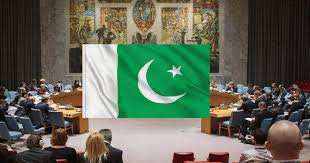Imran Khan’s PTI Slams Bilawal Bhutto-Zardari
Pakistan Tehreek-e-Insaf (PTI), led by jailed former Prime Minister Imran Khan, has sharply criticized Pakistan People’s Party (PPP) Chairman Bilawal Bhutto-Zardari.

The backlash follows Bilawal’s remarks suggesting Pakistan could extradite terror suspects to India. PTI labeled him an “immature political child,” accusing him of undermining national security. The controversy highlights deep political rivalries in Pakistan.
Bilawal’s Extradition Comments Spark Fury
In an Al Jazeera interview on July 4, 2025, Bilawal discussed extraditing “individuals of concern” like Lashkar-e-Taiba’s Hafiz Saeed and Jaish-e-Mohammad’s Masood Azhar to India.
He framed it as a confidence-building measure for dialogue. Bilawal stressed Pakistan’s willingness, provided India cooperates with evidence and witnesses. He claimed Saeed is jailed and Azhar possibly in Afghanistan. These remarks triggered PTI’s outrage.
PTI’s Harsh Response
PTI spokesperson Sheikh Waqas Akram denounced Bilawal’s stance as “shockingly appeasing.” He called the proposal detrimental to Pakistan’s national security.
Akram accused Bilawal of lacking political wisdom and understanding of regional geopolitics. PTI argued that such statements humiliate Pakistan internationally. They demanded Bilawal clarify who authorized his remarks and his motives
Background of Political Tensions
Pakistan’s political landscape is polarized. Imran Khan, imprisoned since August 2023, faces multiple charges, which PTI claims are politically motivated.
The PPP, allied with the ruling Pakistan Muslim League-Nawaz (PML-N), holds significant power.
Bilawal, a former foreign minister, is a key coalition figure. PTI views his comments as aligning with the establishment, intensifying their rivalry. Historical animosity, including Bilawal’s June 2025 National Assembly speech mocking Khan, fuels the conflict.
Why PTI Lashed Out
PTI sees Bilawal’s extradition remarks as a betrayal of Pakistan’s sovereignty. They argue it appeases India, a long-standing rival accused of state-sponsored terrorism against Pakistan.
PTI believes Bilawal’s suggestion undermines Pakistan’s stance on Kashmir, a core issue for the party. Akram criticized Bilawal for deviating from PPP’s founding principles under Zulfikar Ali Bhutto.
PTI’s strong reaction also reflects their strategy to rally supporters amid Khan’s detention and recent legal setbacks.
Pakistan’s political scene is a battleground of competing narratives. The PTI-PPP clash over Bilawal’s extradition comments is the latest chapter in a saga of distrust and power struggles.
Bilawal’s suggestion to extradite terror suspects, framed as a diplomatic gesture, touched a raw nerve for PTI. They view it as a surrender to India, which they accuse of aggression and interference. This dispute is rooted in decades-old tensions between Pakistan and India, particularly over terrorism and Kashmir. PTI’s aggressive response serves multiple purposes. With Imran Khan in jail, the party is under pressure to maintain its relevance.
Legal setbacks, like the Supreme Court’s June 27, 2025, ruling denying PTI reserved parliamentary seats, have weakened their position. By attacking Bilawal, PTI galvanizes its base, portraying itself as the defender of Pakistan’s sovereignty.
The “immature political child” jab aims to discredit Bilawal’s credibility, painting him as unfit for leadership. Bilawal’s remarks, however, were not without nuance. He emphasized that extradition hinges on India’s cooperation, citing its failure to provide evidence or witnesses.
He also highlighted Pakistan’s actions against Saeed, who is serving a 33-year sentence, and claimed Azhar’s whereabouts are uncertain. Yet, PTI seized on the broader implication of his statement, framing it as a reckless concession to a “hostile neighbor.
The PPP hit back, accusing PTI of misinterpreting Bilawal’s words and echoing Indian media narratives. A PPP spokesperson defended Bilawal’s stance as principled, focused on regional peace and counterterrorism. This exchange underscores the deep divide between the two parties, with PTI leveraging nationalist sentiment to counter the ruling coalition’s dominance.


 Pakistan-Russia Freight Train Service to Begin in August 2025
Pakistan-Russia Freight Train Service to Begin in August 2025  Pakistan Assumes UNSC Chair
Pakistan Assumes UNSC Chair  Water Crisis in Pakistan 4 Urgent Letters to India
Water Crisis in Pakistan 4 Urgent Letters to India  Modi Declares Operation Sindoor Ongoing
Modi Declares Operation Sindoor Ongoing  India-Pakistan Agree on US-Mediated Ceasefire
India-Pakistan Agree on US-Mediated Ceasefire  Former UK PM Rishi Sunak Backs India’s Anti-Terror Operation
Former UK PM Rishi Sunak Backs India’s Anti-Terror Operation